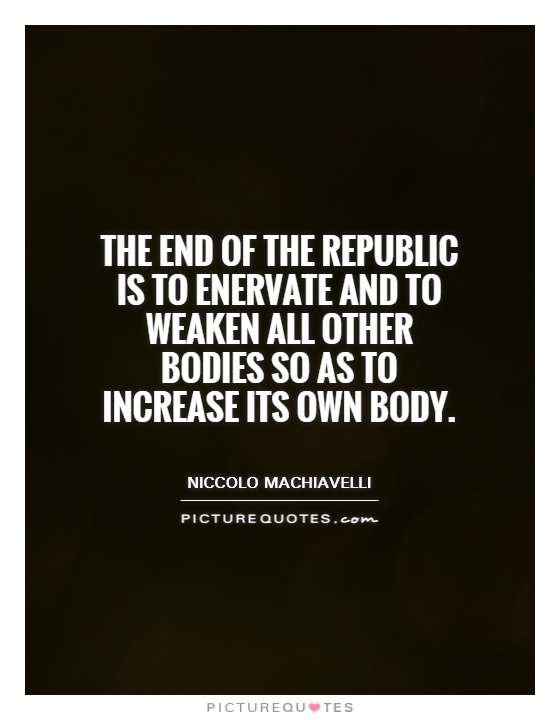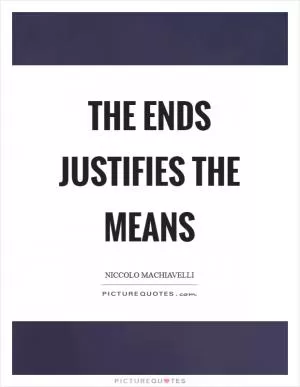The end of the republic is to enervate and to weaken all other bodies so as to increase its own body

The end of the republic is to enervate and to weaken all other bodies so as to increase its own body
Niccolò Machiavelli, the renowned Italian political philosopher and diplomat, is often associated with his controversial views on power and governance. One of his most famous quotes, "The end of the republic is to enervate and to weaken all other bodies so as to increase its own body," encapsulates his belief in the ruthless pursuit of power and control in order to maintain stability and dominance.Machiavelli's statement reflects his pragmatic approach to politics, where the ultimate goal of a republic is to consolidate power and authority at the expense of other institutions and bodies. In his seminal work, "The Prince," Machiavelli argues that a ruler must be willing to use any means necessary to maintain order and security, even if it means resorting to deceit, manipulation, and violence. This ruthless pursuit of power is essential for the survival and success of the state, according to Machiavelli.
In the context of a republic, Machiavelli believed that the government should be strong and centralized in order to prevent internal divisions and external threats. By enervating and weakening all other bodies, such as the nobility, the clergy, and the military, the republic can consolidate power and maintain control over its citizens. Machiavelli saw the concentration of power in the hands of a strong leader as essential for the stability and prosperity of the state.
However, Machiavelli's views on power and governance have been widely criticized for their ruthless and amoral nature. Critics argue that his emphasis on power at all costs undermines the principles of justice, morality, and democracy. Machiavelli's belief in the ends justifying the means has been used to justify authoritarian and oppressive regimes throughout history.












 Friendship Quotes
Friendship Quotes Love Quotes
Love Quotes Life Quotes
Life Quotes Funny Quotes
Funny Quotes Motivational Quotes
Motivational Quotes Inspirational Quotes
Inspirational Quotes